Organic farming is a method of growing crops that uses natural processes and resources to promote the soil and plants’ health. This means organic farmers avoid synthetic pesticides, fertilizers, and other chemicals that can harm humans and the environment. Turkey has a long history of agriculture, and organic farming is becoming increasingly popular. Organic farming is a growing trend in Turkey, with more and more farmers turning to this sustainable method of agriculture. Let’s check out how to start organic farming in Turkey below.
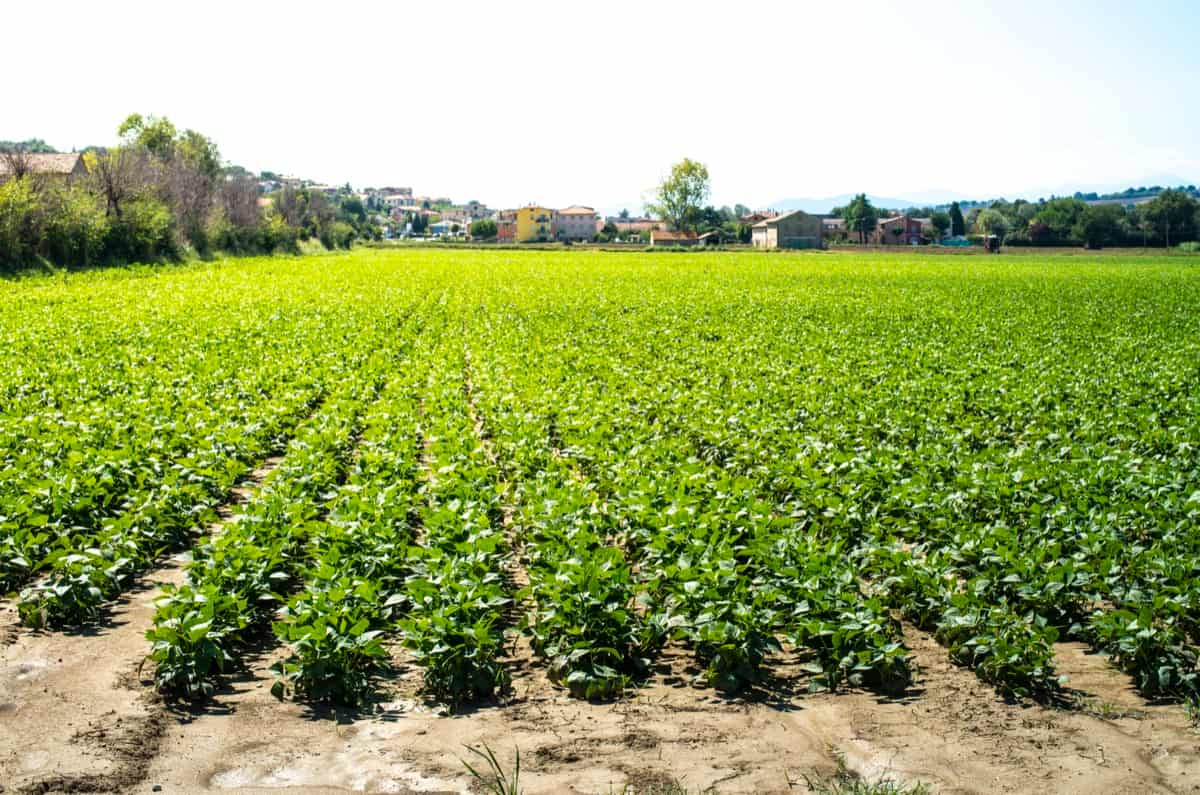
What is Organic Farming?
It is a method of agriculture that uses natural and non-toxic inputs to grow crops rather than synthetic chemicals like pesticides and fertilizers. The goal of organic farming is to create healthy, biodiverse ecosystems that are capable of sustaining themselves over time. Organic farming emphasizes biodiversity by promoting plant diversity in fields rather than monoculture. One key aspect of organic farming is soil health. Organic farmers build their soil using compost, cover crops, and other natural amendments. This allows them to maintain nutrient levels in their fields without using chemical fertilizers.
Why Organic Farming is Important in Turkey?
Organic farming is a sustainable agricultural practice that encourages using natural inputs and techniques to produce food while preserving soil fertility, biodiversity, and ecosystem health. It involves avoiding synthetic fertilizers, pesticides, herbicides, antibiotics, or growth hormones commonly used in conventional agriculture. It helps reduce our exposure to harmful chemicals often found in non-organic foods. These chemicals can be linked to various diseases like cancer and neurological disorders.
Organic farming promotes healthy soil by encouraging crop rotation practices, ensuring nutrients remain within the soil. Healthy soils help support diverse microbial populations, which promote plant growth and enhance nutrient uptake. Organic farming supports biodiversity conservation by providing habitats for plants and animals beyond those grown for human consumption. Organic farms typically have more complex landscapes compared to monoculture systems which provide habitat for pollinators such as bees and butterflies essential in crop production.
Organic Soil Management in Turkey
- One crucial aspect of organic farming is soil management. Organic soil management involves using natural materials like compost and manure to enhance the fertility and structure of the soil. It also includes crop rotation, cover crops, and reduced tillage practices to prevent erosion.
- In Turkey, organic farmers have adopted various methods of soil management based on their location, climate conditions, and available resources. For example, some use green manure to add nutrients to their land, while others rely on animal waste or seaweed-based fertilizers.
- Organic soil management improves crop yields and contributes to healthier ecosystems by reducing pollution from synthetic fertilizers. By adopting sustainable farming practices like organic soil management techniques in Turkey, we can ensure a better future for our planet while providing healthy food options for consumers worldwide.
In case you missed it: Management of Black Thrips in Chilli Peppers: Symptoms, Treatment, Chemical, Biological, Natural, and Organic Control
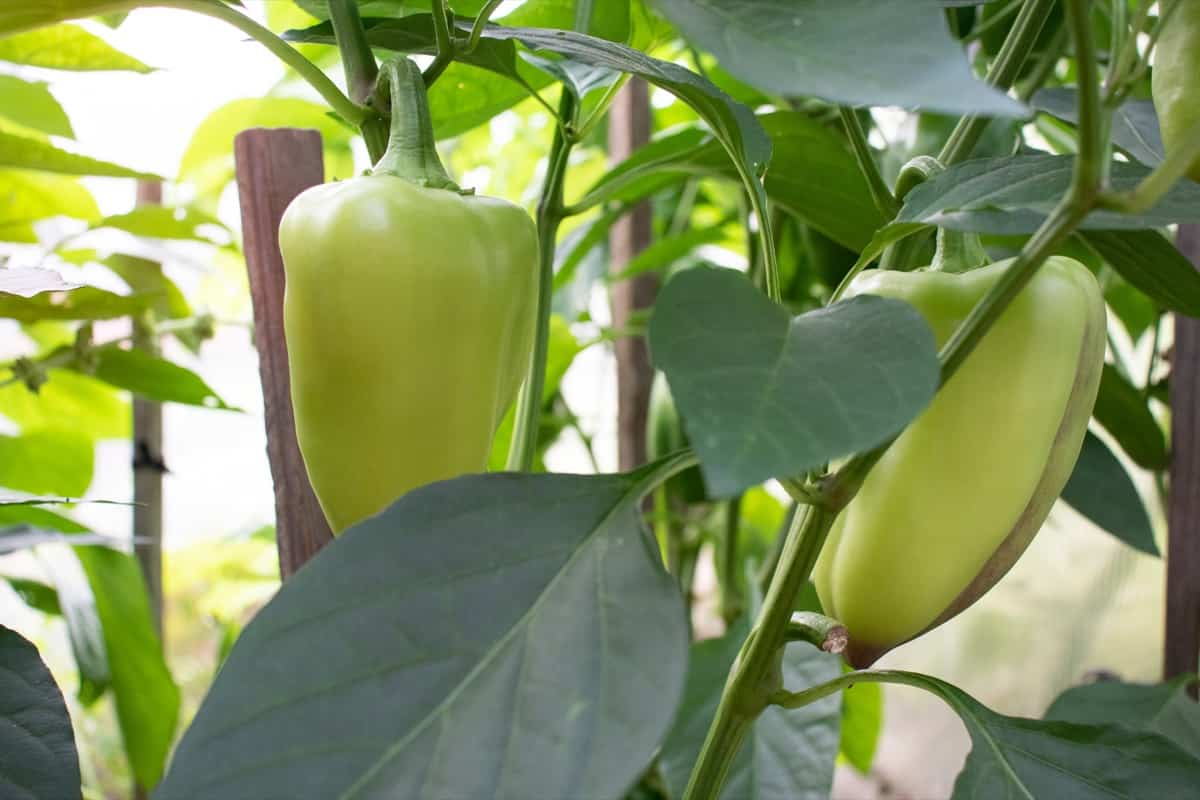
Organic Vegetable Farming in Turkey
- Organic vegetable farming in Turkey has gained popularity over the years as more and more consumers are becoming aware of the benefits of consuming organic produce. The country’s rich agricultural history makes it an ideal location for growing various vegetables.
- One key aspect of organic vegetable farming is soil management. Organic farmers in Turkey use natural methods to improve soil health, such as crop rotation, composting, and intercropping. This helps to maintain a healthy balance of nutrients in the soil, which ultimately translates into healthier crops.
- Another important practice used by organic vegetable farmers is pest control. Instead of using harmful chemicals that can harm humans and wildlife, Turkish farmers use natural methods like companion planting and biological controls to manage pests.
- Organic vegetable farming also emphasizes sustainable practices such as water conservation and reducing waste. Many farms have implemented drip irrigation systems to conserve water while maintaining optimal crop moisture levels. Organic vegetable farming offers many benefits for consumers and the environment in Turkey.
What are the Organic Farming Practices in Turkey?
- One of the most important practices is crop rotation, which helps to maintain soil health and prevent nutrient depletion. This involves alternating between crops each season to ensure the soil has time to recover between plantings.
- Another common practice is composting, which provides a source of natural fertilizer for crops. Farmers can use various materials, such as animal manure, kitchen scraps, or plant waste, to create their compost.
- Cover cropping is also an effective way to improve soil health by protecting it from erosion and providing additional nutrients when incorporated into the soil after growth. These cover crops include legumes like clover or vetch that add nitrogen to the earth’s system.
- Farmers who follow organic principles avoid synthetic fertilizers, herbicides, or pesticides. Instead, they rely on physical barriers such as netting or row covers against pests, companion planting (planting herbs near vegetables), and biological controls (predator insects). Organic farming practices vary depending on location but prioritize sustainable land-use management over maximizing production efficiency.
How to Start Organic Farming in Turkey?
Research: Before diving into organic farming, thoroughly research market demand, crop varieties suitable for your region, soil quality testing, and organic farming techniques. Determine what type of organic farming you want to pursue. You could focus on growing fruits and vegetables or both. Research the market demand for your chosen crop before investing time and resources.
In case you missed it: How to Get Rid of Fruit Fly in Vegetables: Symptoms, Treatment, Management, Chemical, and Organic Control
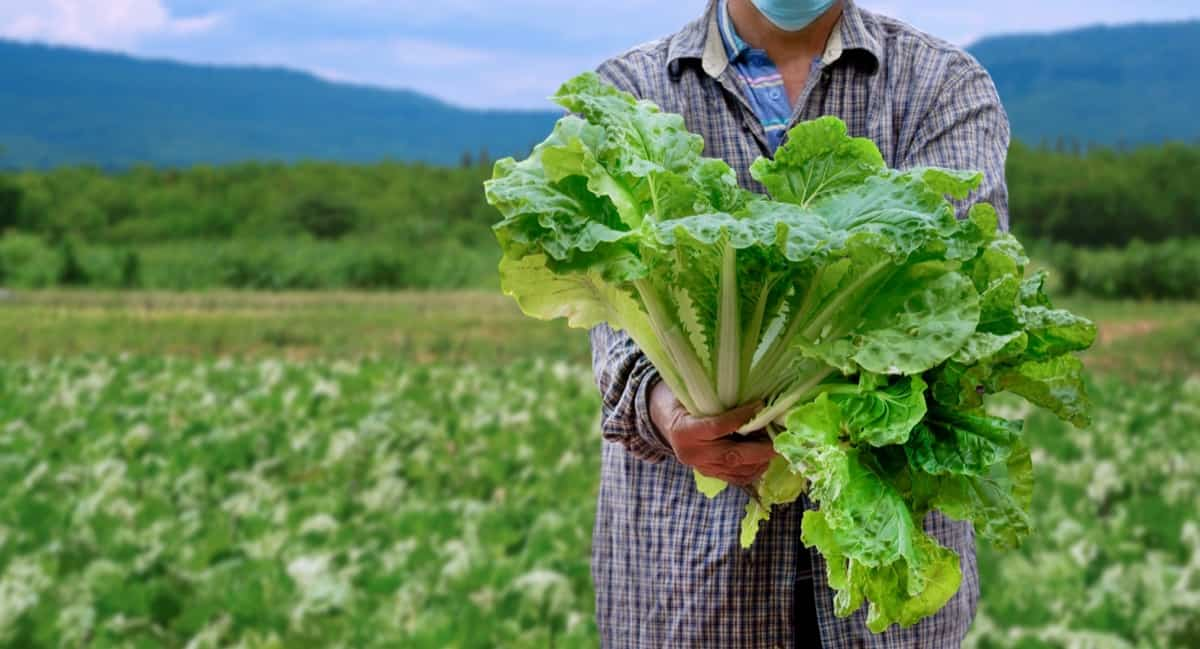
Land preparation and location: Find a suitable piece of land free from chemical residues or pollution. Prepare the land by removing weeds, debris, and rocks. Choose a suitable location for your farm based on soil quality, climate conditions, and water availability. It’s important to ensure that the land is free from chemicals and pesticides that may have been used in previous years.
Seed selection: Select high-quality, non-GMO (genetically modified organisms), and certified organic seeds. Decide which crops will thrive best in your location and start planting them at the appropriate time of year. Consider using natural pest control methods instead of harmful pesticides.
- Soil management: Use composted manure or natural fertilizers to improve soil fertility without harming microorganisms.
- Crop rotation: Practice crop rotation to prevent pests and disease build-up and maintain healthy soil nutrient balance.
- Pest control: Employ integrated pest management practices such as using beneficial insects, crop-resistant varieties, or natural repellents instead of synthetic pesticides, which can harm human health and the environment.
Pest and Diseases Management for Organic Farming in Turkey
Pest and disease management is a crucial aspect of organic farming in Turkey. You cannot use synthetic pesticides or chemicals to control pests and diseases as an organic farmer. Hence, it is important to implement preventive measures and adopt sustainable practices for pest management.
One effective method is crop rotation, which involves alternating the crops grown in a particular field from season to season. This helps break the life cycle of pests that may target specific plants. Another approach is using natural predators such as ladybugs, lacewings, or praying mantises that consume harmful insects like aphids or mites. Intercropping can also help deter pests by confusing their sense of smell with different plant scents mixed.
Disease prevention can be achieved through good sanitation practices, such as cleaning tools regularly and removing diseased plant parts promptly before they spread further. It’s essential to monitor your crops regularly for any signs of infestation or disease development so that prompt action can be taken if necessary. By adopting these practices, you can effectively manage pests and diseases while maintaining the integrity of your organic farm in Turkey.
Weed Management for Organic Farming in Turkey
- It is a crucial aspect of organic farming in Turkey. Weeds can compete with crops for nutrients, reducing yields. However, chemical weed control methods are not allowed under organic farming regulations.
- One effective method of weed management is through the use of cover crops. Cover crops help to suppress weeds by shading them out and competing with them for resources. Additionally, cover crops improve soil health and fertility.
- Another approach to weed management is mechanical cultivation. This involves using hand tools or machinery, such as cultivators or tillers, to remove weeds from the field.
- Mulching is also an effective way of suppressing weeds while improving soil health at the same time. Organic farmers in Turkey can use materials like straw, hay, or leaves as mulch around their crop plants.
- Effective weed management practices are essential for successful organic farming in Turkey. By implementing these methods properly, farmers can safeguard their harvests against harmful competition from invasive plants without compromising environmental sustainability principles.
In case you missed it: Top 20 Steps to Boost Wheat Yield: How to Increase Wheat Production
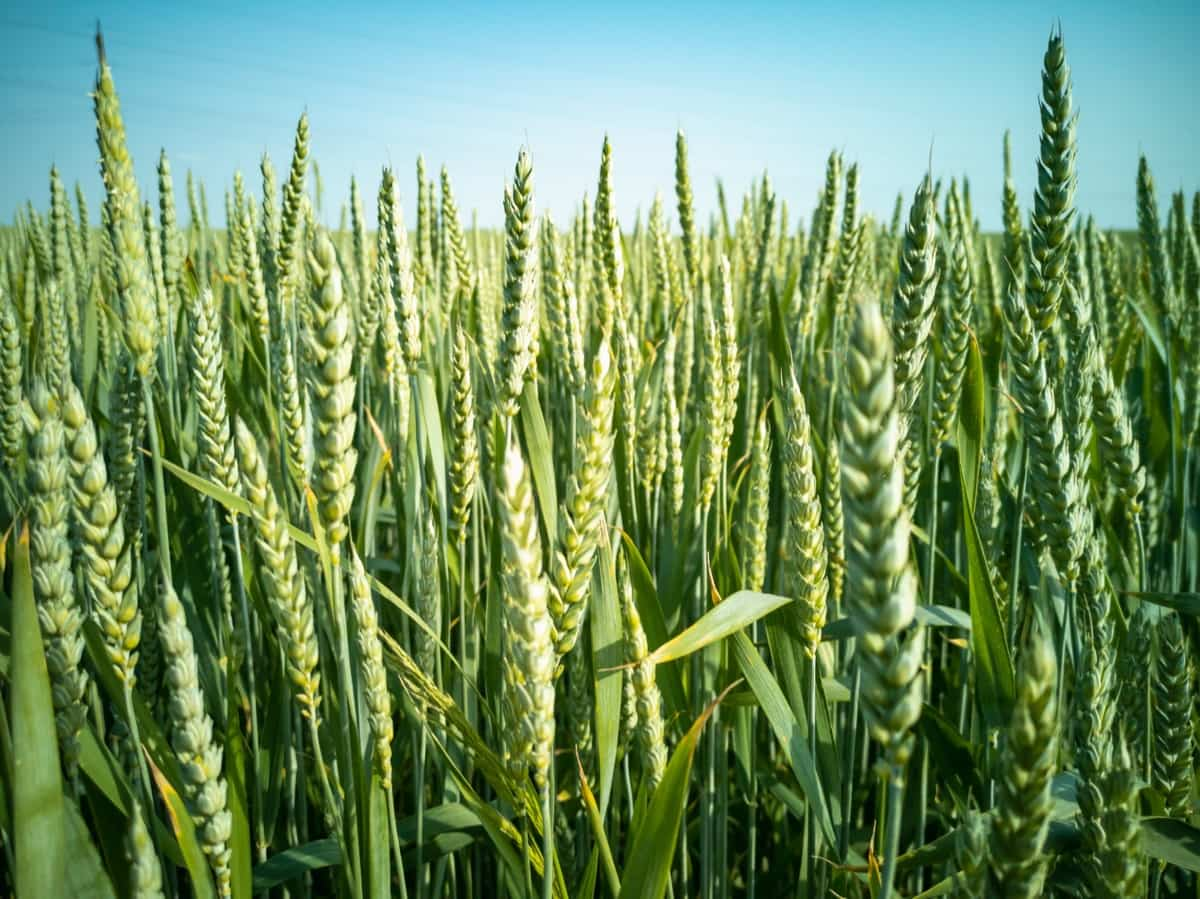
Which Crops Are Grown Under Organic Farming in Turkey?
- Turkey has a diverse range of climatic conditions, which make it suitable for growing various organic crops.
- Fruits such as Apricots, Sultanas, Figs, Apricots, Hazelnuts, Cherries, Figs, Grapes, Melons, Peaches, and Pomegranates are widely grown in Turkey using organic farming methods. These fruits have high local and international demand due to their rich flavor and nutritional value.
- Turkey also produces nuts like Almonds, Hazelnuts, and Walnuts. These nuts are grown organically in many parts of the country because they thrive well under specific climate conditions in Turkey.
- Vegetables such as Tomatoes, Eggplants (aubergines), and Cucumbers (gherkins) are also popularly grown by Turkish farmers using organic methods. They can be available throughout the year, while others, like Green Beans or Peppers, have seasonal availability depending on planting times.
- Other crops commonly produced using organic farming techniques include cereal grains such as Wheat, Barley & Rye; oilseeds including Sesame seeds & Sunflower seeds; pulses including Chickpeas/Beans along with spices that include Cumin/Coriander/Black Pepper/Turmeric/Paprika, etc., all which contribute significantly towards meeting domestic needs while at the same time providing export opportunities for local farmers.
Nutrient Management for Organic Farming in Turkey
In organic farming, nutrient management is crucial for ensuring healthy crops and soil fertility. Organic farmers in Turkey use a variety of techniques to manage nutrients sustainably without the use of synthetic fertilizers. One technique used is crop rotation, where crops are grown in succession to improve soil health and nutrient levels. Legumes like beans or lentils are also planted as they fix nitrogen from the air into the soil. Composting is another effective method for providing plants with necessary nutrients by recycling organic matter like food scraps, animal manure, grass clippings, etc.
Farmers may also use green manures that cover bare ground so that it’s not exposed to erosion and provide additional nutrition when incorporated back into the soil. Mulching can be done using straw or leaves, which helps retain moisture in the soil while slowly breaking down and releasing valuable minerals. By implementing these strategies, Turkish farmers can maintain high-quality yields without compromising on their principles of sustainability and environmental responsibility.
In case you missed it: Tomato Farming Business Plan: A Production and Cultivation Guide for Beginners
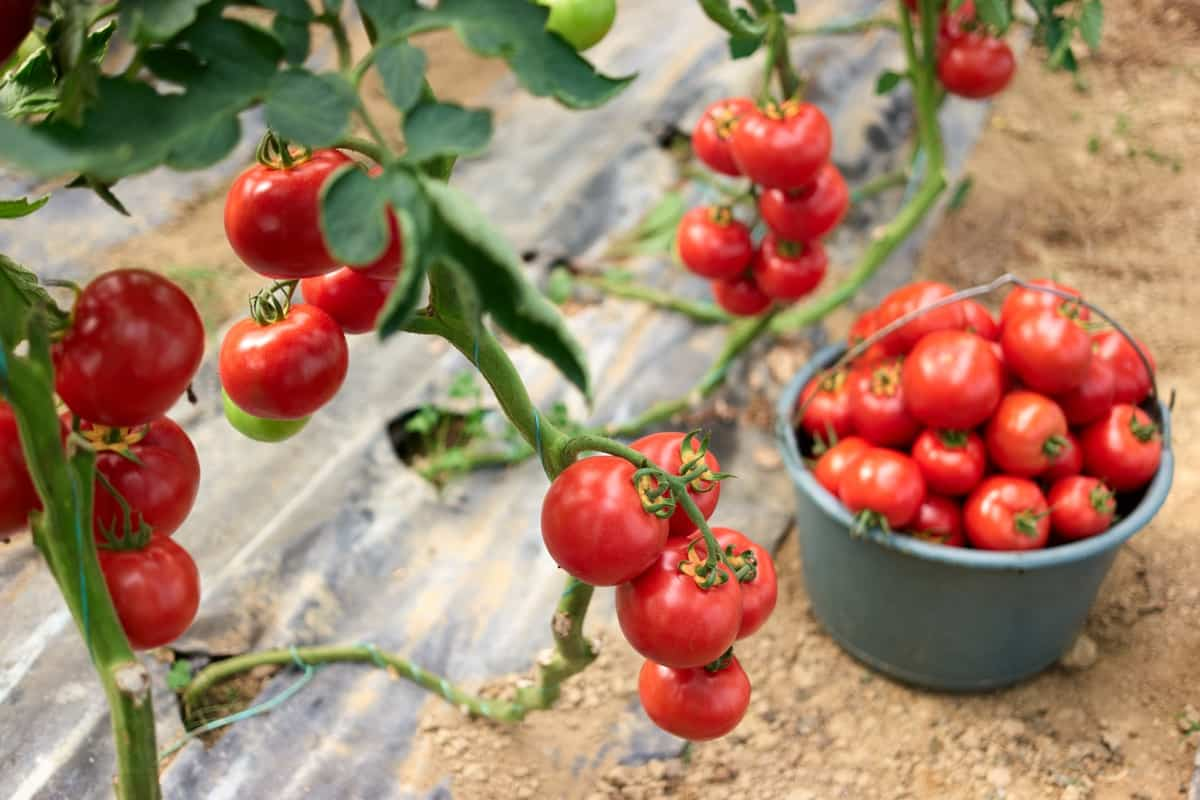
Organic Farming Certification and Policies in Turkey
It is an essential aspect of organic farming in Turkey. The certification process ensures that the farmer follows all the regulations for organic farming, from cultivation to processing and packaging. To obtain a certificate, farmers must meet strict conditions set by government institutions such as the Ministry of Agriculture and Forestry. These include maintaining soil fertility naturally, avoiding synthetic fertilizers and pesticides, using only non-GMO seeds, and adopting sustainable agricultural practices.
The certification process includes regular inspections of farms to ensure compliance with these regulations. Once certified as an organic farm producer in Turkey, farmers can use labels on their products to indicate that they have met these rigorous standards. This label assures consumers that the product has been produced sustainably without harmful chemicals or additives. The Turkish Ministry of Agriculture and Forestry provides subsidies through various programs to promote organic farming in the country.
These include financial incentives for converting conventional farms into certified organic ones and support programs for research and development activities related to organic agriculture. Another significant policy underpinning Turkey’s commitment to promoting sustainable agricultural practices is its National Action Plan on Sustainable Agriculture. This plan outlines strategies to improve soil quality, reduce pesticide use, enhance biodiversity conservation efforts, and strengthen institutional frameworks supporting farmers engaged in sustainable agriculture.
Moreover, many international organizations like FAO (Food & Agricultural Organization) have supported Turkey’s initiatives towards increasing its share of global trade in Organic products within a short time frame by providing technical assistance focusing on capacity-building measures to ensure compliance with international standards.
In case you missed it: Pest and Disease Management in Sunflower: Causes, Symptoms, Chemical and Biological Control

Conclusion
Turkey is the leading country in certified organic land areas today. The growth and success of organic farming in Turkey can be attributed to various factors, such as favorable climate conditions for growing crops and livestock-rearing practices that align with organic standards. Furthermore, increasing demand for high-quality and healthy food products among consumers has also contributed significantly towards its growth.
- Economical Aquaculture: A Guide to Low-Budget Fish Farming
- 15 Common Planting Errors That Can Doom Your Fruit Trees
- How to Make Houseplants Bushy: Effective Tips and Ideas
- Innovative Strategies for Boosting Coconut Pollination and Yield
- Pollination Strategies for Maximum Pumpkin Yield
- The Complete Guide to Chicken Fattening: Strategies for Maximum Growth
- Natural Solutions for Tulip Problems: 100% Effective Remedies for Leaf and Bulb-Related Issues
- Revolutionizing Citrus Preservation: Towards a Healthier, Greener Future
- Natural Solutions for Peony Leaf and Flower Problems: 100% Effective Remedies
- Maximizing Profits with Avocado Contract Farming in India: A Comprehensive Guide
- Natural Solutions for Hydrangea Problems: 100% Effective Remedies for Leaf and Flowers
- The Ultimate Guide to Choosing the Perfect Foliage Friend: Bringing Life Indoors
- From Sunlight to Sustainability: 15 Ways to Use Solar Technology in Agriculture
- The Ultimate Guide to Dong Tao Chicken: Exploring from History to Raising
- The Eco-Friendly Makeover: How to Convert Your Unused Swimming Pool into a Fish Pond
- Mastering the Art of Delaware Chicken Farming: Essentials for Healthy Backyard Flocks
- 20 Best Homemade Fertilizers for Money Plant: DIY Recipes and Application Methods
- How to Craft a Comprehensive Free-Range Chicken Farming Business Plan
- Brighten Your Flock: Raising Easter Egger Chickens for Beauty and Bounty
- How to Optimize Your Poultry Egg Farm Business Plan with These Strategies
- Subsidy for Spirulina Cultivation: How Indian Government Schemes Encouraging Spirulina Farmers
- Ultimate Guide to Raising Dominique Chickens: Breeding, Feeding, Egg-Production, and Care
- Mastering the Art of Raising Jersey Giant Chickens: Care, Feeding, and More
- Ultimate Guide to Raising Legbar Chickens: Breeding, Farming Practices, Diet, Egg-Production
- How to Raise Welsummer Chickens: A Comprehensive Guide for Beginners
- How to Protect Indoor Plants in Winter: A Comprehensive Guide
- Ultimate Guide to Grow Bag Gardening: Tips, Tricks, and Planting Ideas for Urban Gardeners
- Guide to Lotus Cultivation: How to Propagate, Plant, Grow, Care, Cost, and Profit
- Agriculture Drone Subsidy Scheme: Government Kisan Subsidy, License, and How to Apply Online
- Ultimate Guide to Raising Araucana Chickens: Breed Profile, Farming Economics, Diet, and Care
- Bringing Hydroponics to Classroom: Importance, Benefits of Learning for School Students
- Ultimate Guide to Raising Polish Chickens: Breed Profile, Farming Economics, Diet, and Care
- Ultimate Guide to Raising Australorp Chickens: Profile, Farming Economics, Egg Production, Diet, and Care
- Silkie Chicken Farming: Raising Practices, Varieties, Egg Production, Diet, and Care
- Sussex Chicken Farming: Raising Practices, Varieties, Egg Production, Diet and Care
- Homemade Feed Formulations for Livestock: Discover Cost-effective Starter to Finisher Feed Recipes